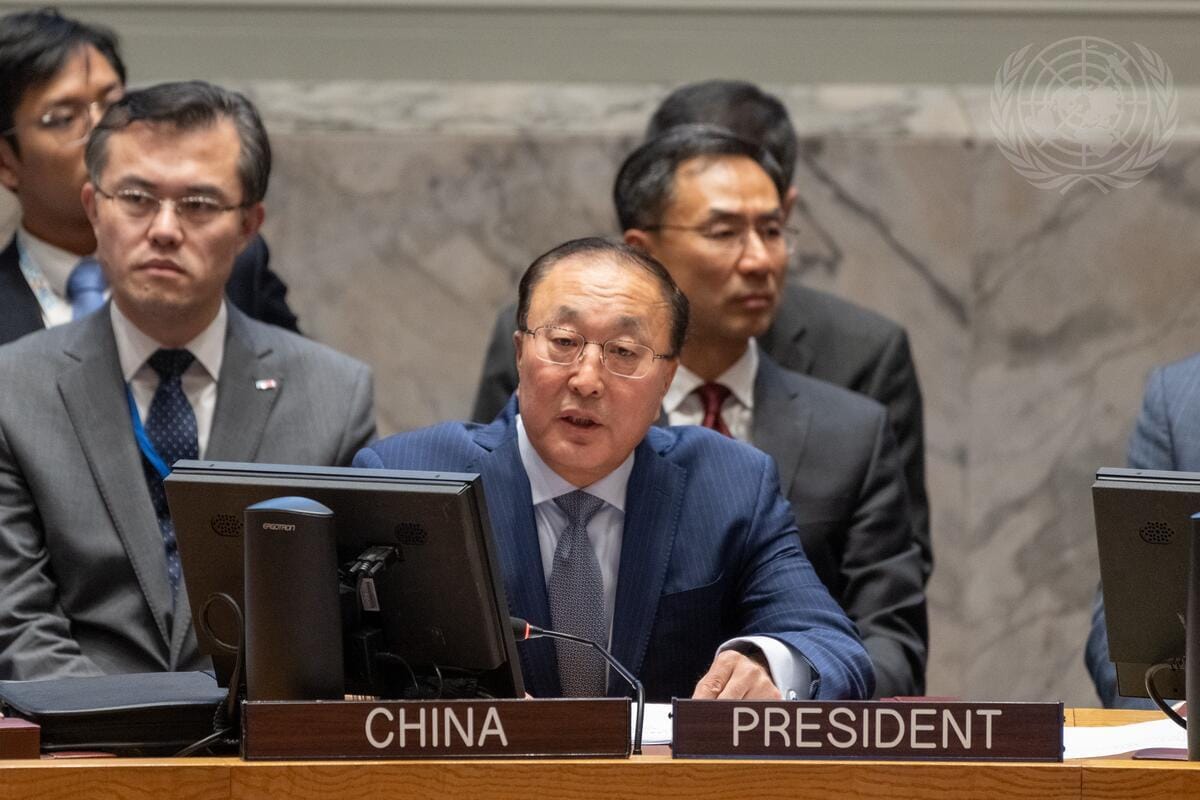China’s Ambassador to the UN Zhang Jun spoke at a UN Security Council hearing on Feb. 23 marking the second year of Ukraine conflict. The diplomat decided to level some harsh criticism against those nations which continue to insist on a war against Russia in Ukraine, while at the same time blaming Russia for its continuation. This was a “tragedy that could have been avoided,” Zhang said, and added that “The international community should pull together in search of a just and sensible solution to settle the crisis politically and let peace prevail as soon as possible.”
He called to “stop hostilities, launch peace talks, and restore peace,” and not “to supply weapons, stoke the fire and pour oil on it, and to profit from the prolonged crisis.”
He then addressed the cause of the war: “We must respect the legitimate security concerns of all countries and never lose sight of the fact that security is indivisible, that one country’s security cannot be achieved at the expense of other countries’ security.” Then he said: “It must be pointed out that the situation Europe is facing today is closely related to the repeated eastward expansion of NATO since the end of the Cold War. We encourage NATO to do some soul-searching, come out of the cage of Cold War mentality, and refrain from acting as an agent of trouble instigating bloc confrontation.”
Zhang condemned “certain countries” for imposing unilateral sanctions and weaponizing the economy “using the Ukraine crisis as a pretext.”
The diplomat wrapped up his statements by discussing the changing world situation, and the need for the Western world to give up on old thinking: “The Cold War ended over 30 years ago. Since then, the international landscape has undergone profound adjustments and the multi-polarization of the world has picked up pace. This is the trend of the times and the tide of history. Humanity is a community with a shared future…. For the world to slide back to the colonial age is not an option. International affairs should not be monopolized by a minority of countries … major countries have a special responsibility for world peace and security, and must conduct their relations responsibly and manage their differences properly in pursuit of win-win cooperation.”






